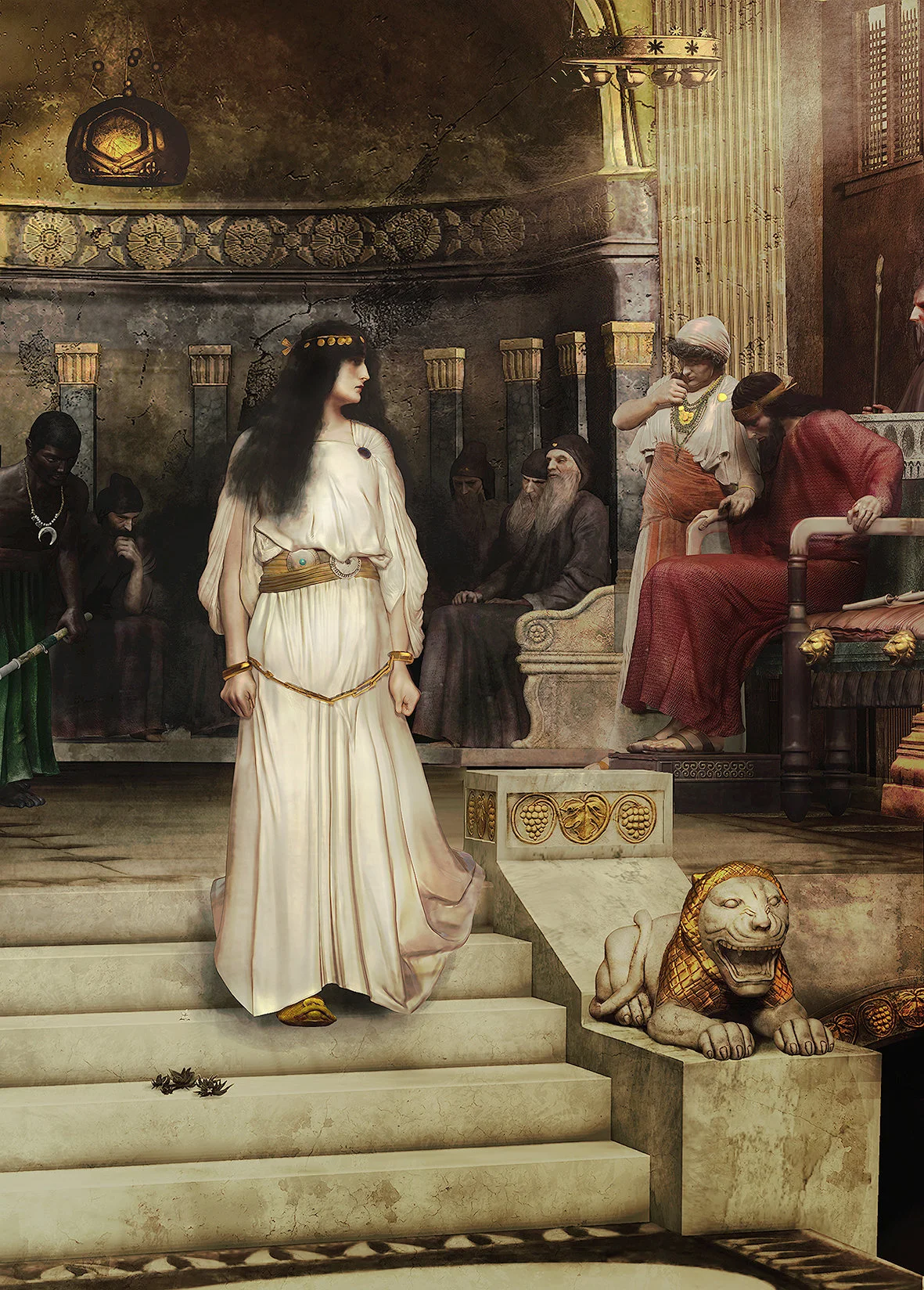What Happened to the Maccabees?
by Rabbi Elliot Klayman, Kehilat Ariel - San Diego, CA
Rabbi Elliot Klayman
The origin of Hanukkah dates back over 2100 years, when a fearless and faithful Jewish family known as the Maccabees stood up against a powerful sovereign bent on eradicating the Jewish way of life. The rest is history.
The Jewish people enjoyed a good relationship with their Greek-Syrian rulers under the reign of Antiochus the Great, beginning in the late 3rd century BCE. His son Antiochus Epiphanes ascended to the realm in 175 BCE, and that relationship deteriorated to the worst of times seven years later. Antiochus desired to raise taxes, and to consolidate his realm by hellenizing the kingdom. This required that the unique Jewish practices be subordinated in favor of Greek culture, which was steeped in paganism. Antiochus installed high priest puppets who best mirrored his desire, and whose ultimate aim was to turn Jerusalem, the capital of Judea, into a model Greek polis (state).
Antiochus’s vision required a cultural shift from the oddity of Jewish temple life and praxis to the customary Greek institutions and environment. One of the bulwarks he instituted against Jewish temple life was the introduction of the gymnasium, a center for sport. The priests and the elite Jews were attracted to it, thus changing their focus from the Temple to the Gymnasium. One puppet high priest, Menelaus, who was not from the high priestly lineage, won Antiochus’s approval when he promised more money for the crown, derived from extortion of higher taxes, and from plundering the temple treasury. Antiochus also settled foreigners into areas contiguous to Jerusalem, which increased tensions and conflicts between the Jewish people and their pagan neighbors. Many Jews fled Jerusalem and found freedom from hellenism in the surrounding deserts, villages and countryside towns.
In 167 BCE, Antiochus issued a decree imposing a death sentence on those who observed the Sabbath or circumcised their children. The Temple was rededicated to the Olympian god, Zeus. Swine was sacrificed on the altar and Jews were required to eat pork. Apparently, Antiochus saw militant monotheism as a great threat against his strong-handed rule and desired a more homologous rule and allegiance that would unite his kingdom against his Egyptian southern enemy, the Ptolemies.
Antiochus underestimated the resolve of the bulk of Jewry. The Jewish upper crust and the corrupt high priesthood cult did remain loyal to Antiochus and his hellenization plan. But the masses of Jewry adhered sharply to their Jewish faith and practices. For the Jews, martyrdom was better than surrendering their faith in the God of Abraham, Isaac, and Jacob. While Antiochus clamped down harder with his hellenistic program, biblical yearnings and hope arose among the faithful, as they looked toward the “end of days.”
When the king’s forces came to the town of Mod’in to compel the Jews there to engage in pagan ritual, the priest Mattathias, and his five sons, Jochanan, Simeon, Eleazar, Jonathan, and Judah, led a rebellion against Antiochus. It started with Mattathias killing first, a Jew who approached the pagan altar to sacrifice, and then the Greek soldier who was there to enforce the king’s decree.
The Maccabean army of peasants fights the armored elephants of the Seleucid-Greeks
Along with his sons, Mattathias and the faithful followers fled to the hills to continue the revolt and many gathered around them. Importantly, Mattathias ruled that the Jews could take up arms on the Sabbath to repulse the king’s army. The insurgents actually fought a war on two fronts; first, against Antiochus’s army, and second against the Jewish collaborators whose hellenistic practices dominated their culture to the extent that they would not circumcise their males or keep the Sabbath.
Upon Mattathias’s death, Judah the Hammer (Maccabee) took the leadership and repeatedly defeated the Syrians, establishing himself as a worthy successor and a respected military leader. Then in the month of Kislev (December) 164 BCE, after Antiochus’s death, Judah and the rebels entered Jerusalem, where the Temple was in ruins, defaced with pagan statues. They purified the Temple and rededicated it, reestablishing the priesthood.
Judah successfully warded off the challenges to Judaism with fidelity to Torah, One God, and Jewish customs. Jewish militant manpower was now centralized around Judah and the Maccabees, increasing their stature, reputation, and number of followers. Judea was in the hands of the Jews and Judah’s might was essential in rescuing many of its people from gentile violence in surrounding regions. Upon the death of Judah a series of Maccabean descendants, known as the Hasmoneans, followed, beginning with Judah’s surviving brothers and then their descendants. Their rule was fraught with successes and failures.
After enjoying relative independence for 103 years, the Hasmonean dynasty started to spiritually and physically decline through a series of family rivalries, political ambition, greed, debauchery and interference by foreign powers, mainly Rome. In 63 BCE, the Roman general Pompey conquered the land of Israel, thus ending the Hasmonean sovereignty over the Land, and annexing the territory into the Roman Empire.
The trial of Mariamne I, the last member of the Hasmonean dynasty
The last touch of Hasmonean presence was Mariamne, the second wife of Herod the Great, who ruled Judea from 37 to 4 BCE. Ultimately, Herod, sick with paranoia and illusions, caused Mariamne to be put on trial for alleged disloyalty. She was convicted and executed in 29 BCE. So ended the Hasmonean dynastic power.
Six decades later, Yeshua appeared in the Temple on the Feast of Hanukkah and responded to questions and accusations about his claim to be Messiah. He was there to celebrate the victory of the Maccabees and the preservation of the Jewish people. Although he did not come in the warlike might of Mattathias and Judah, like them, he did come to liberate his people.




